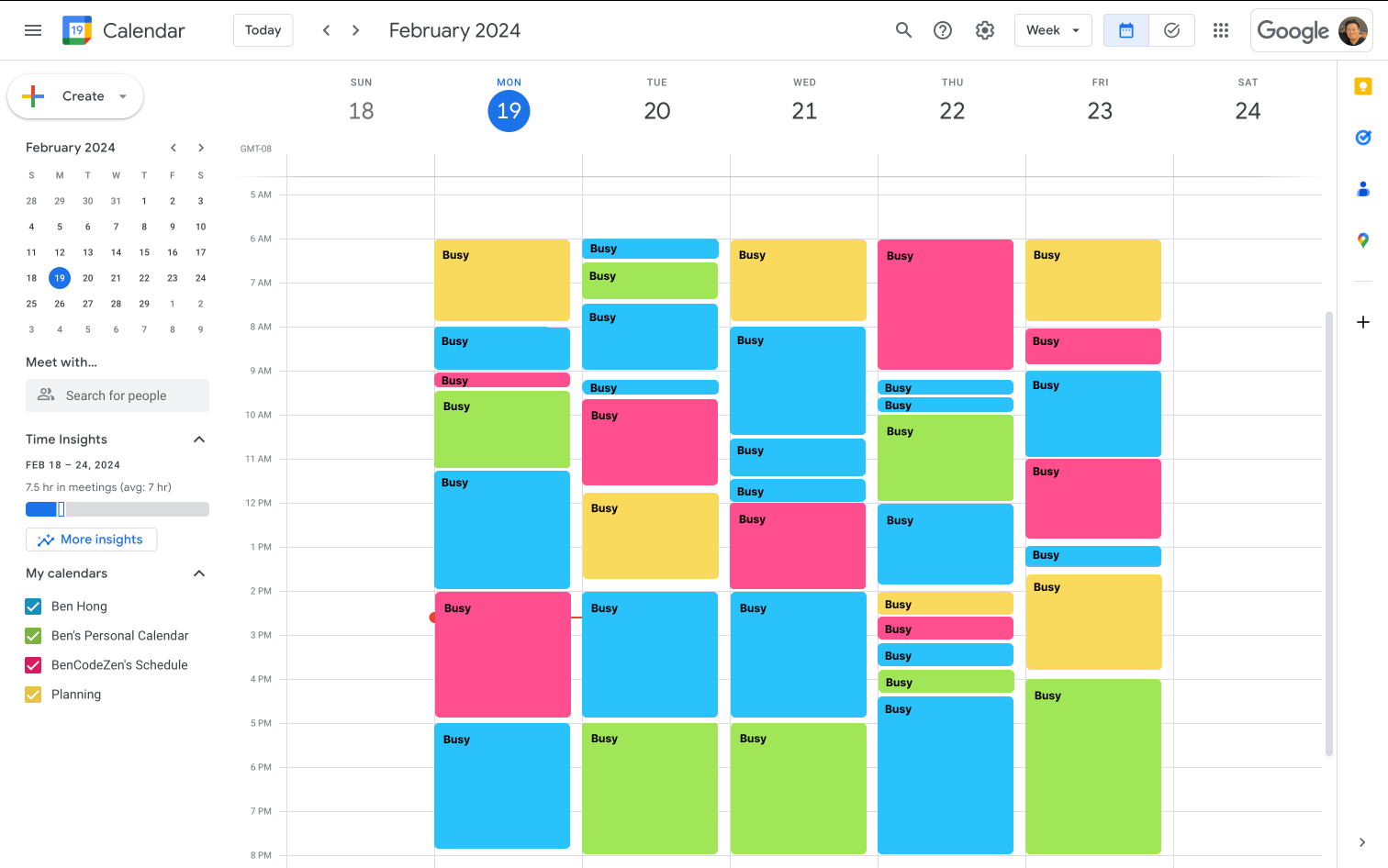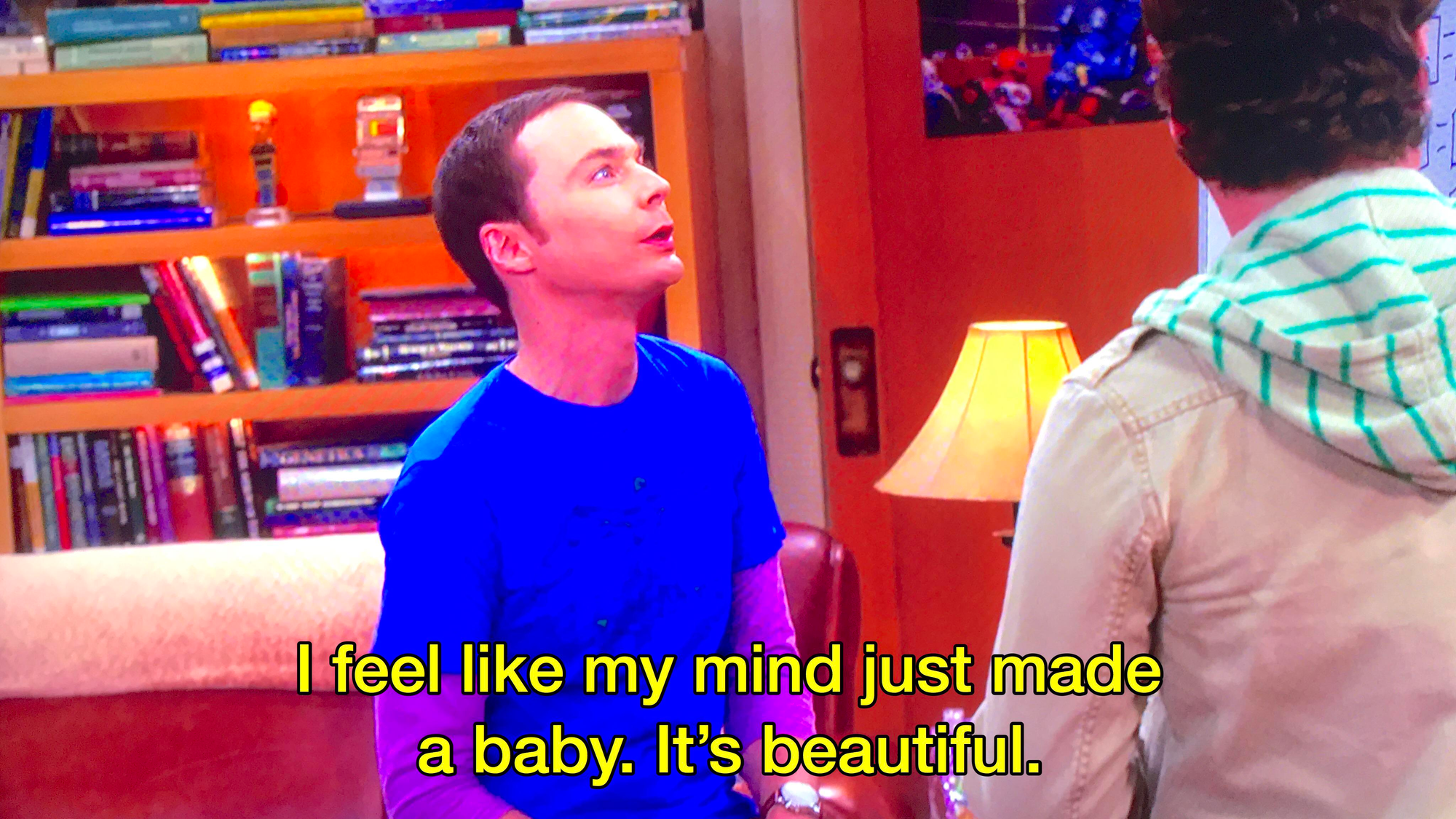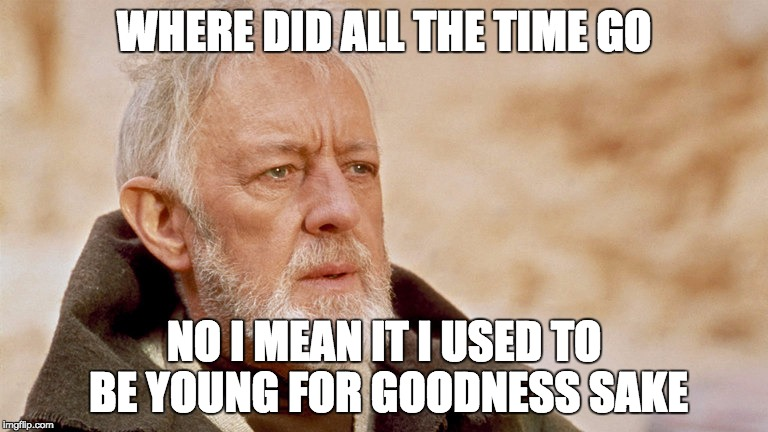The Illusion of the Perfect Weekly Plan

It's Sunday. And it's time to plan my week again.
Assuming I get 8 hours of sleep, my days will start at 5:00 AM and end at 9:00 PM for a grand total of 16 hours. So, I open up my calendar, todo lists, goals, and start sketching out my week:
- Establish the goals I'd like to accomplish by the end of the week.
- Break down all my goals into action items that go into my todo lists.
- Try to estimate how much time everything will take.
- Fill up my calendar with whatever blocks are needed to accomplish my goals.
After adjusting some of the original time estimates (because they don't fit in the calendar properly), my calendar is now optimized down to the minute with pretty colored boxes.


However, as someone who has attempted to plan my week with this level of detail multiple times, what happens during the week often doesn't go according to plan... 😅
The "Plan" Trap
When it comes to the weekly plan, one of the biggest traps I find myself falling into is trying to predict my time blocks with 100% accuracy. Similar to how meteorologists can only predict the weather with so much accuracy, what was supposed to be a sunny day could end up instead a downpour of rain.

Some examples of things that are often unaccounted for when forecasting the week include:
- Things taking longer than expected
- Getting sick, family emergencies, etc.
- {{ insert random event that cannot be planned for }}
Rather than calling it a weekly plan, it would be more accurate to call it a weekly forecast. In other words, rather than trying to plan and optimize every minute of your week, it's important to leave space for the randomness of life.
Past Me vs Current Me
⏰ Reminder: It's time to work on your blog post.
My laptop is open and lo-fi music is playing in the background.
The document has made it past the blank page syndrome, but it's a jumble of words and ideas that fail to come together in a cohesive manner. My brain wants to leap to another idea, but I really need to get this blog post out...
tick... tick... tick... DING!
Before I know it, the hour I allocated for "Finish and publish blog post" is gone. All I have to show for it is a half-baked blog post and it's time for the next thing in the plan. 🫠

The funny thing about the perfect weekly plan is that it often ends up being a gigantic todo list that future me is responsible for. And the ironic thing about it is that even though I am technically the one who chose what I would work on, future me doesn't often align with what past me wants to do.
Other examples of this conflict include:
- Creativity / productivity blocks
- What is important then isn't as important now
- An unanticipated wave of inspiration hits you and you want to go on a different trajectory
While often overlooked, the ability to choose what makes the most sense in a given moment is critical to the success of a weekly plan.
After all, your future self will have more data than you did at the time you created the plan. It's critical to give your future self the space and ability to adapt.
How I Create Space
Creating space is certainly easier said than done. While my process is far from perfect, here are some strategies I currently use when planning out my week:
- Leave at least 20% of my time unallocated. Just choose a percentage that feels like a good starting point for you. It'll change week to week and you'll learn what works best for you over time.
- Resist the urge to overcommit early in the week. It feels good because it's aspirational, but you don't want to imprison your future self to priorities that your past self set. It may even cause anxiety because you feel like you won't get as much done, but it's critical for making the most of your time.
- Trust your future self to make good decisions. This will be hard for a lot of people, but this is the key for being able to go beyond the plan and live life as it comes rather than as you want.
Closing thoughts
The illusion of the perfect weekly plan is a seductive one because it gives us a sense of immense control. Unfortunately, it often leaves us more frustrated than satisfied. Instead of trying to perfectly predict how everything goes, I hope that you can plan in a way that allows for spontaneity, reflection, and rest.
Remember that the true measure of success isn't how closely we adhere to the plan, but how well we adapt to and grow from the unexpected.
